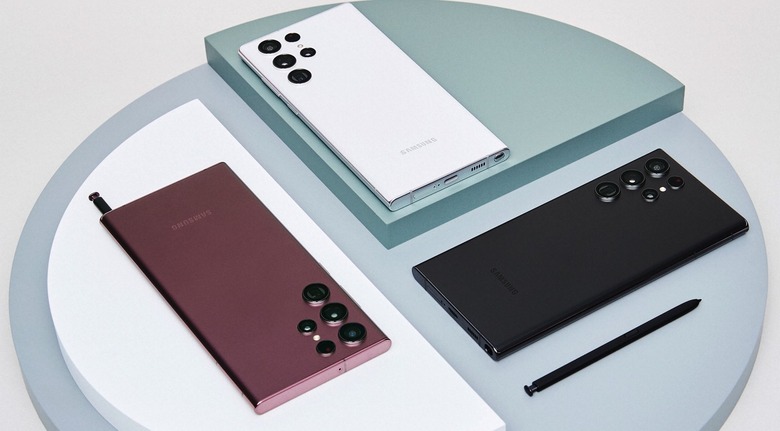Galaxy S22 Might Throttle Performance For 10,000 Apps
The Galaxy S22 series is one of the best Android phones you can buy right now. It represents Samsung's best response to the iPhone 13, although benchmark tests have already shown the new phones can't match their biggest rivals. But it appears that the Galaxy S22 might be suffering from a big issue, as Samsung is throttling performance for some 10,000 apps.
An app called Game Optimizing Service (GOS) that users can't uninstall or disable might be responsible for the problem. Samsung is apparently investigating it.
The Galaxy S22 app performance problem
The GOS service should improve the performance of names, as the name suggests. But it appears that Samsung is using it to limit the performance of as many as 10,000 Android apps, including apps that you might routinely use. The list includes Netflix, Instagram, TikTok, and some Google apps. Even Samsung apps are throttled on phons with GOS enabled, including Samsung Pay or Secure Folder.
This list includes all the apps that GOS throttled.
Samsung created an app called GOS and used the app to limit game performance, making the gaming experience worse. However, according to what the Korean community found out today, Samsung confirmed that it has put performance limits on more than 10,000 apps... pic.twitter.com/U58AreZZoo
— 한 가 련 (@GaryeonHan) March 2, 2022
Per 9to5Google, GOS is preinstalled on their Galaxy S22 Plus, and they can't remove it. On the other hand, Android Authority reports that the GOS app isn't installed on its Galaxy S22 units. Similarly, it doesn't appear on the Galaxy S20 FE and Galaxy S10e. But they found GOS On the Galaxy S21 Plus, and the app can't be disabled.
Aside from reducing the performance of regular apps, GOS seems to ignore benchmark apps. That means apps supposed to measure the performance of the Galaxy S22 and other phones would have access to the full power of the handset. However, regular apps wouldn't.
A YouTuber changed the name of a benchmark app to prove the behavior of Samsung's GOS service, according to xda-developers. The original benchmark app scored 2618 points in the Wild Life Extreme test on the Galaxy S22. But the score went down considerably (1141) once GOS throttled the app of the renamed variant. You can see the experiment in the following video.
Why is Samsung throttling apps?
Before Samsung unveiled the Galaxy S22 series, we saw the first signs that the new handsets can't outperform the iPhone 13 models. The Snapdragon 8 Gen 1 chip cant outscore the A15 Bionic. Then, Samsung delayed the Exynos 2200. And when it unveiled its own Galaxy S22 processor, it didn't even advertise any performance gains compared to its predecessor.
This prompted speculation that the new chip could have performance issues. Pundits wondered whether the phones will be able to deliver sustained performance and whether users will experience overheating issues. In turn, such Galaxy S22 performance issues will tax the battery life.
Given the findings that GOS throttles app performance on Samsung phones like the Galaxy S22, the conclusion seems to be that Samsung might be throttling app performance intentionally. This ensures the phone doesn't overheat and improves battery life. However, GOS doesn't throttle benchmark apps, as shown in the video above.
Samsung employees are also criticizing this as bad behavior, referring to Volkswagen's Dieselgate. Accordingly, Samsung has launched an investigation, and there are rumors that Samsung's Vice Chairman Lee Jae-yong is also moving.
— 한 가 련 (@GaryeonHan) March 2, 2022
All of that translates to Samsung misleading buyers. The Galaxy S22 might feature the newest chips, but that means nothing if GOS throttles app performance. It's also a problem that you can't disable the feature. Samsung's intentions aren't necessarily bad, but throttling should be up to the user. And again, not throttling benchmark apps amounts to lying to customers.
Samsung wouldn't be the first company to pull this sort of trick. OnePlus was caught throttling the OnePlus 9 last year in a similar fashion.
The good news is that Samsung is investigating the Galaxy S22 app performance problem. That's according to Korean blog Naver. The investigation is significant, apparently, in line with similar actions that Samsung has taken with the Galaxy Note 7 recall or the Galaxy Fold's early durability issues.
